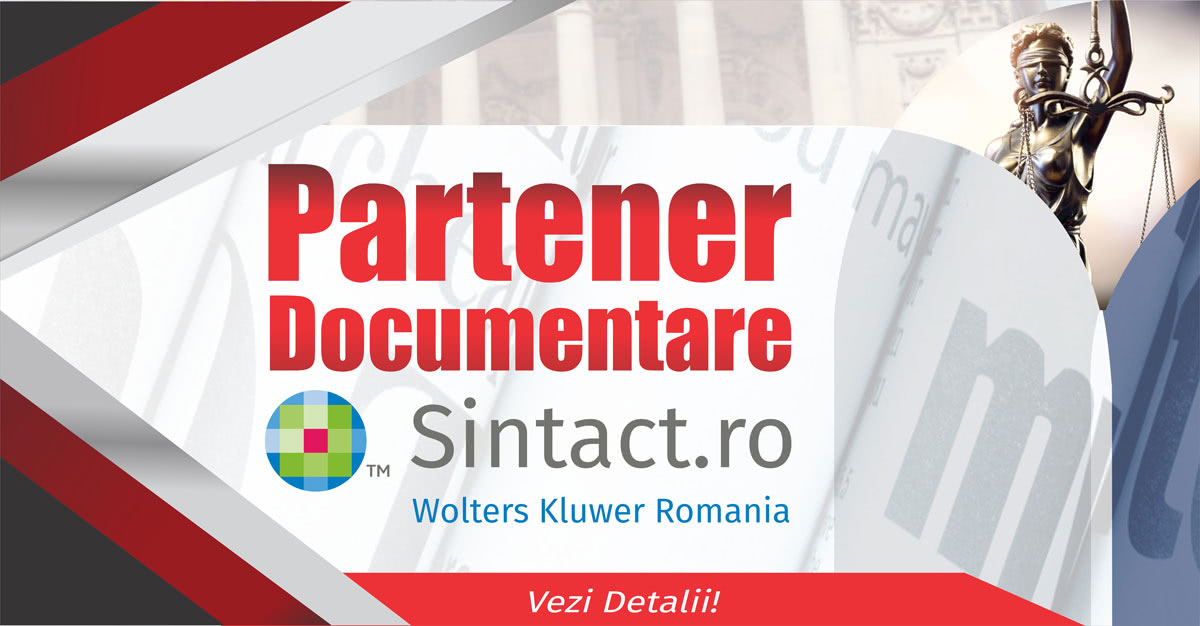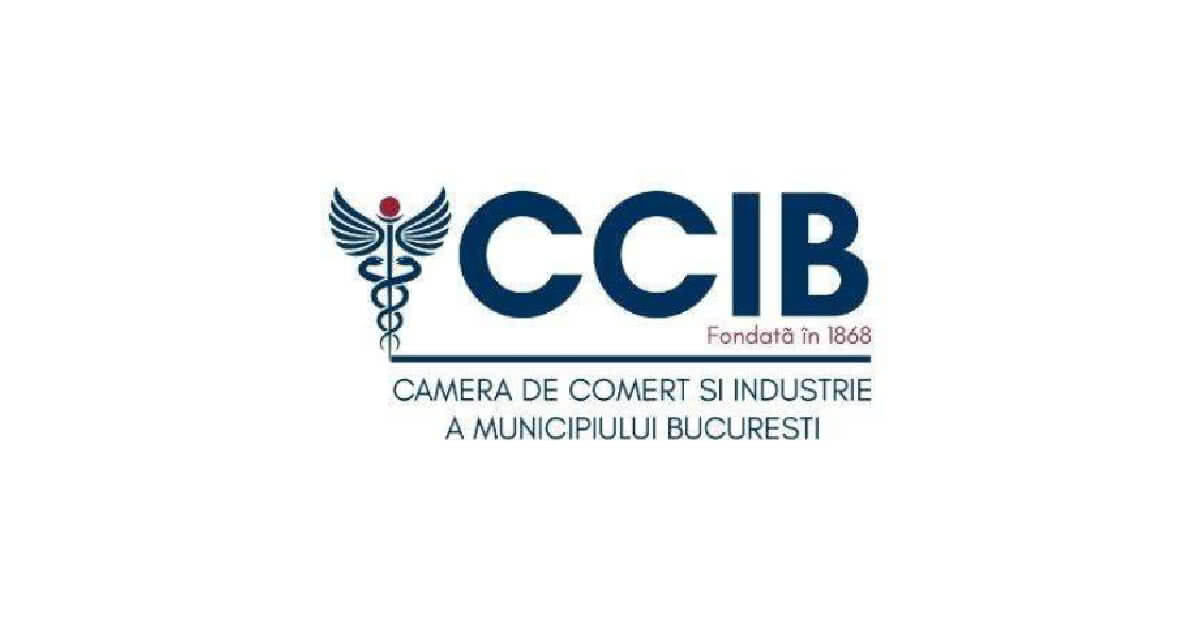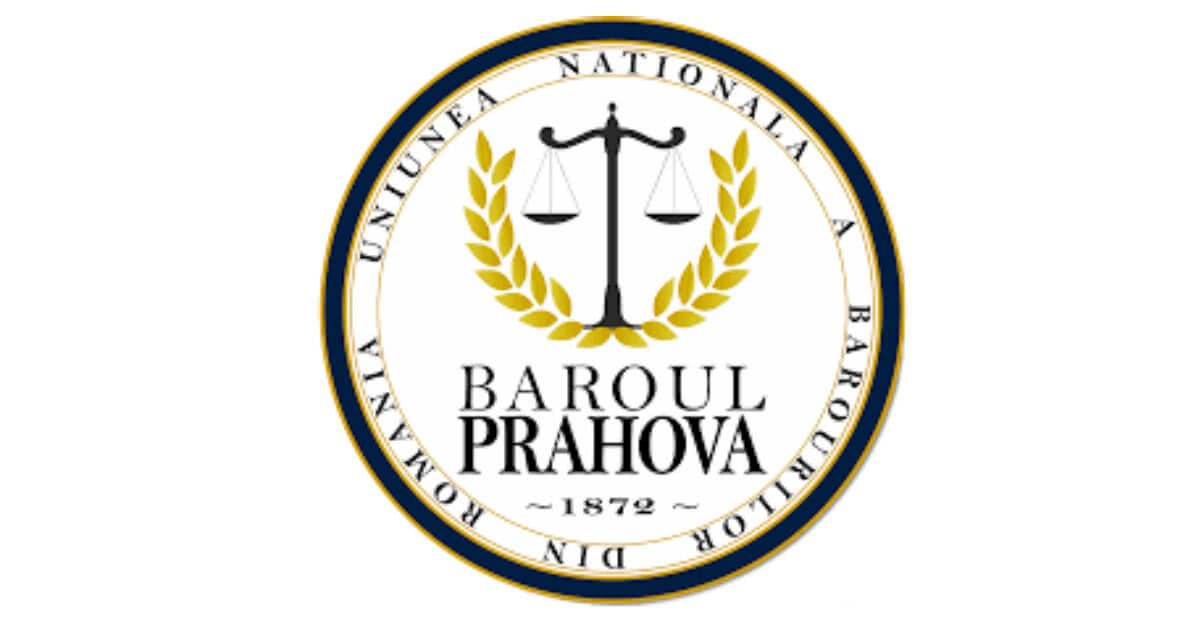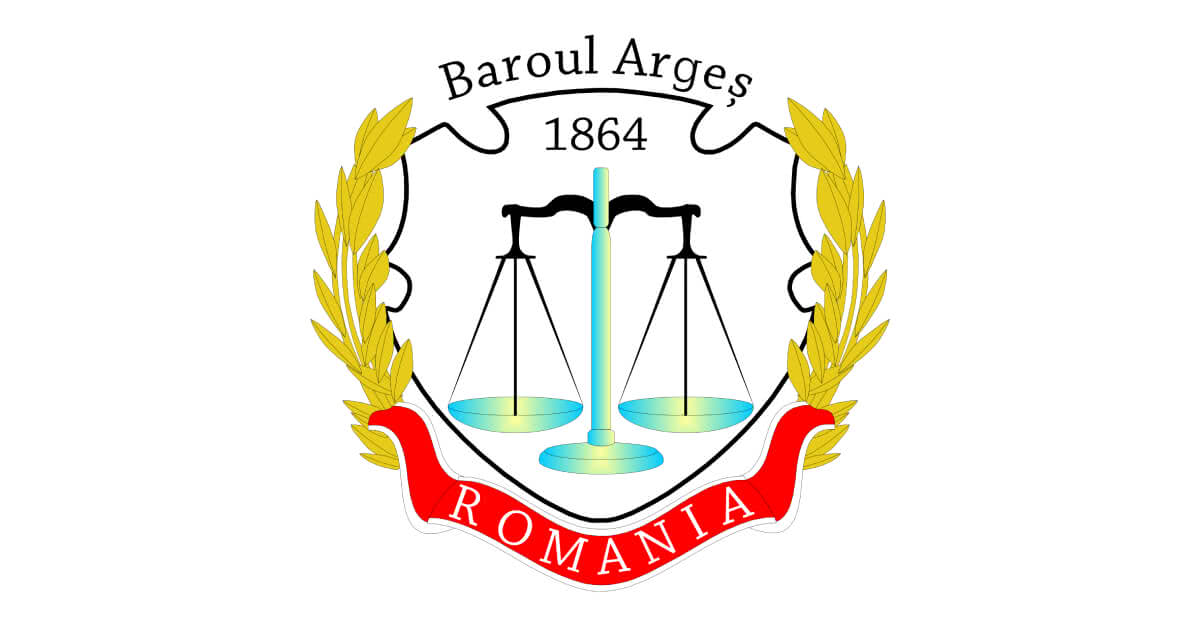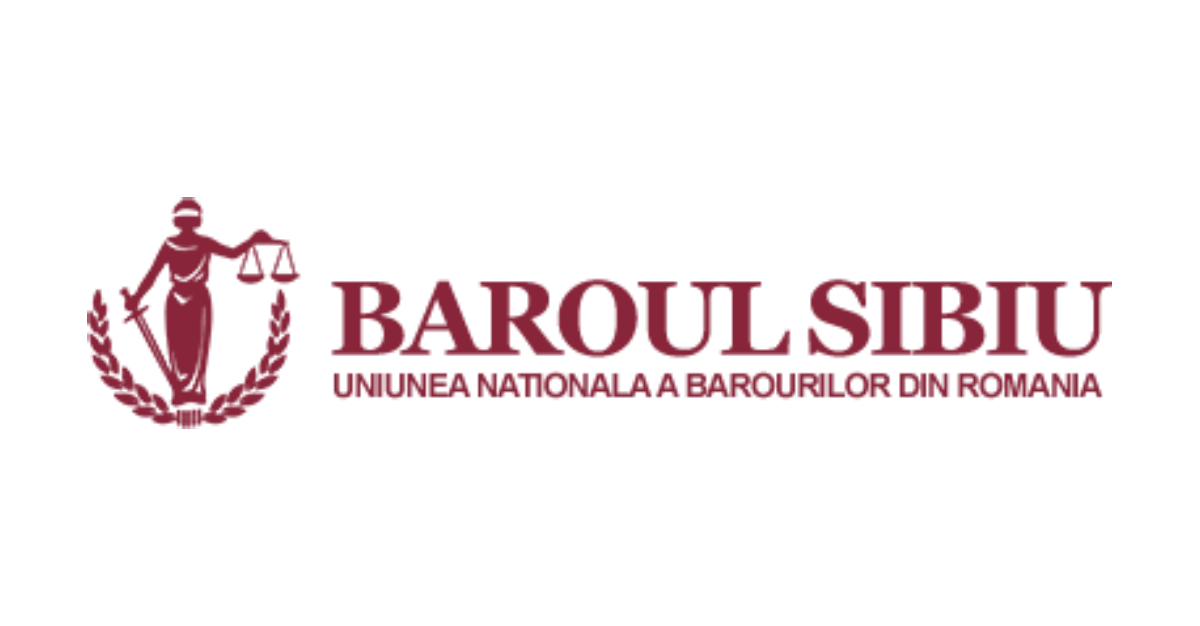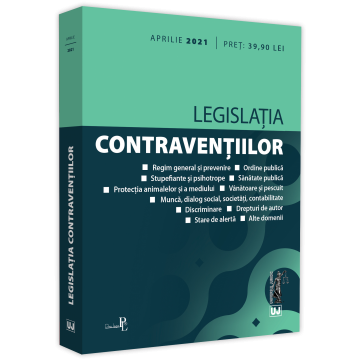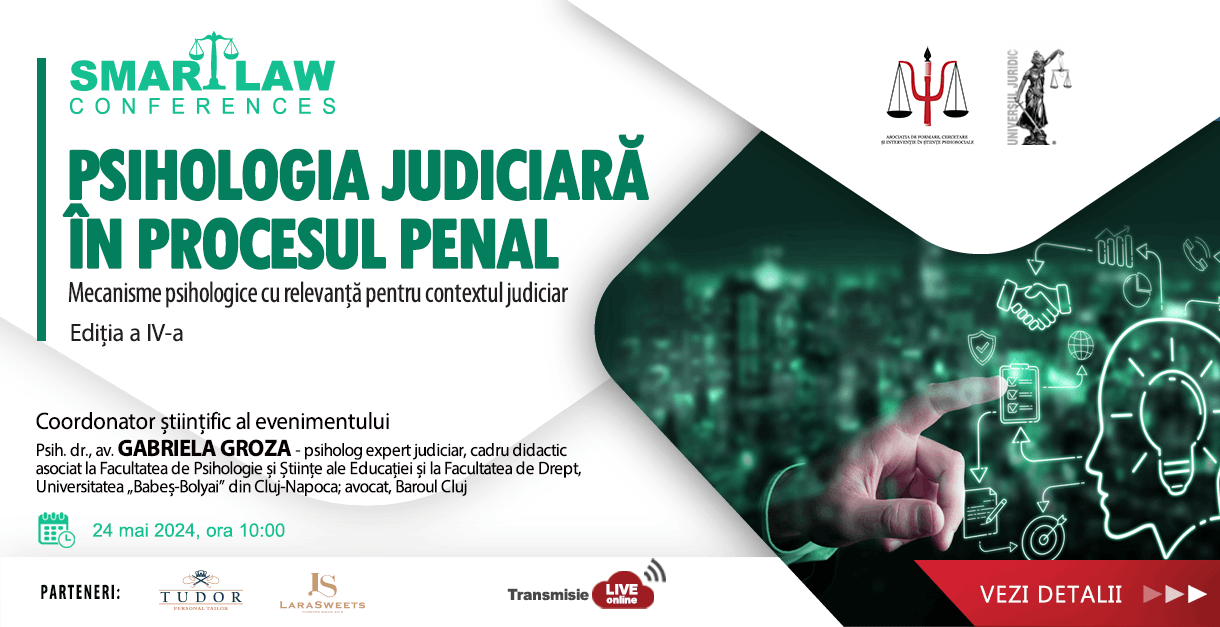International cooperation in the field of insolvency. A judicial perspective
Universuljuridic.ro PREMIUM
Aici găsiți informaţiile necesare desfăşurării activităţii dvs. profesionale.
Universuljuridic.ro PREMIUM pune la dispoziția profesioniștilor lumii juridice un prețios instrument de pregătire profesională. Oferim un volum vast de conținut: articole, editoriale, opinii, jurisprudență și legislație comentată, acoperind toate domeniile și materiile de drept. Clar, concis, abordăm eficient problematicile actuale, răspunzând scenariilor de activitate din lumea reală, în care practicienii activează.
Testează ACUM beneficiile Universuljuridic.ro PREMIUM prin intermediul abonamentului GRATUIT pentru 7 zile!
The Romanian judge should verify his competence according to Regulation (EU) 2015/848, if the connection is within the EU territory, or to the Law no. 85/2014, if it is situated on the territory of a third state. He should verify the type of the procedure, main or secondary procedure. He should analyse the type of action, if the action belongs to the meaning of bankruptcy/ insolvency concepts or is part of the civil and commercial matter. Establishing the Romanian court competence, the judge will apply the Romanian law in the matter[56]. For identifying what cross-border insolvency litigation is within the EU legislation, the judgment of the EU Court of Justice of 14 January 2014 (case C-328/12, Schmid c. Hertel) may be relevant. In this case it is established that the German court, in relation to an insolvency proceeding pending in Germany, has jurisdiction to decide on the action to set a transaction aside when de defendant has the registered office or domicile in Switzerland, not in the EU[57].
6.2. The concept „foreign insolvency representative”: definition, attributions
In the UNCITRAL Model Law article 2 and Insolvency Guide 2004 meaning, the insolvency representative is defined as a person or o body, including one appointed on an interim basis, authorized in insolvency proceedings to administer the reorganisation or the liquidation of the insolvency estate, or to act as a representative of the foreign proceeding.
The term „foreign representative” is linked to the notion „foreign proceeding”. By determining the characteristics necessary for both concepts, the scope of the application of the Model Law is limited to those proceedings and representatives that have the attributes required[58]. The authorization to act in a foreign state on behalf of the proceeding under the enacting State, is permitted by the applicable foreign law[59].
The EC Regulation 1346/2000 mentions the „liquidator” as a specific category of insolvency practitioner, having as duties the administration or liquidation the assets of a debtor, or the supervision of the administration of its business[60].
In the Recast Regulation the term liquidator is replaced with the „insolvency practitioner”. According to article 1 (5), „insolvency practitioner” means any person or body whose function, including provisional, is to: (i) verify and admit claims submitted in insolvency proceedings; (ii) representing the collective interest of the creditors; (iii) administer, either wholly or in part, the debtor’s assets that were unavailable; (iv) liquid assets referred to in (iii); or (v) oversee the management of the debtor’s business. Liquidators are defined by the article 2 (b) and are listed in Annex B of the Regulation (EU) 2015/848. Under the EU Regulation, IP attributions, regulated by the law of the state where the main proceeding is opened, may be exercised in any other member state. Recital 21 provides that: „Insolvency practitioners who are appointed without the involvement of a judicial body should, under national law, be appropriately regulated and authorized to act in insolvency proceedings. The national regulatory framework should provide for proper arrangements to deal with potential conflicts of interest”.
It was observed that the new provisions are unclear and not able to make possible the harmonization of the legislation and practice related to the process of IP’s selection and appointment in different jurisdictions across the EU[61]. What happens when local procedural provisions are insufficiently developed or represent real obstacles on IP’s exercise of its legal powers[62]? Direct access may represent: the possibility for the foreign IP to initiate and participate in local proceedings in any court in member states; the right to act without prior authorisation from the court that named the IP in the foreign procedure; to be assured the same conditions for the foreign IP as they are provided for local practitioners, even if a concrete domestic proceeding hasn’t been opened; to ensure the possibility of receiving notifications and decisions published/registered, even the local legislation does not contain such provisions.
In contrast to the Recast provisions, which restricted IP category to the „regulated” insolvency practitioners, the 2016 Proposed Directive[63] introduces a new concept of „practitioner in the field of restructuring (PIFOR)”, without criteria for their nomination and for professional standards, another issue for the EU legislative body and for practitioners as well.
6.3. Court Access
The UNCITRAL Model Law article 2 defines foreign court as a judicial or other authority competent to control or supervise a foreign proceeding. The atributions related to recognition and cooperation with foreign courts are in the competence of the courts or authorities designated to perform those functions in the enacting state[64]. In accordance with UNCITRAL Model Law principles, a judicial officer’s duty is to identify impartially problems submitted by the parties, „to act judicially, meaning that all interested parties should, in the absence of exceptional circumstances, have the opportunity to be heard in all issues”. We should remember the definition of the term „judge” as „judicial officer or other person appointed to exercise the powers of a court or other competent authority having jurisdiction under legislation based on the Model Law”. That difference determines for the judicial authority the obligation to act independently and impartially[65].
In the EU Recast Regulation, the term „court” means the judicial or any other competent body of a member state „empowered to open insolvency proceedings, to confirm such opening or to take decisions in the course of such proceeding”[66].
The lack of uniform definition for „court” or harmonised professional status of judges, the diversity of the persons defined as „judges” by the status and functions, institutional judicial differences, the internationalisation of the judiciary, all are factors causing an increased interest for soft law transnational guidelines in the insolvency domain. The EU JudgeCo Principle 13 (GP 20) is dealing with the court access of insolvency practitioners representing the foreign main insolvency proceeding, under two directions: the need for direct access to any other court in any member state, in similar conditions the domestic law provides for local insolvency practitioners[67].
6.4. Communication of summons, convocations and notifications[68]
6.4.1. National provisions
According to the Law no. 85/2014, article 42, in the contentious proceedings, only parties whose rights or interests are subject to disputes or settlements shall be summoned in the proceedings. The parties shall be summoned, and the service of any process shall be made by the IPB (Romanian Insolvency Proceedings Bulletin). The courts will send the procedural documents concerned, ex officio, for publication in IPB. In all other cases, the provisions of the Civil Procedure Code relating to the non-contentious procedure shall apply insofar as they do not contravene express provisions laid down by law [article 42 (2)].
As exception, the service of process prepared before the opening of the proceeding and the notification on the opening of the proceeding shall be made according to the Civil Procedure Code. The creditors which were not notified according to article 99, par. (3) shall be lawfully deemed to be within the term allowed to file a statement of claims by filing their statements of claims [article 42 (3)].
By way of exception to the BPI citation rule, the first summons and communication of procedural documents to persons against whom an action is brought under the provisions of the law following the opening of insolvency proceedings shall be carried out in accordance with the provisions of the Code of Civil Procedure and BPI [article 42 (4)]. Creditors who have registered claims for admission of claims are presumed to have knowledge of the time limits provided in article 100 times at article 146 or 147, as appropriate, and will no longer be quoted [article 42 (8)].
The publication of procedural documents or court decisions in IPB replaces the summoning and notification of procedural documents made individually to the participants in the trial, which are presumed to be fulfilled at the time of publication in IPB [article 42 (10)].
6.4.2. Communication of summons, convocations and notifications to participants residing in the EU
The communication in this situation is subject to the provisions of the Civil Procedure Code, the provisions of the Regulation (EU) 2015/848 on insolvency proceedings. It is also applicable the Regulation (EC) 2007/1393 on the service in the member states of judicial and extrajudicial documents in civil or commercial matters, in force from 13.11.2008, which applies as a matter of priority to the Romanian Code of Civil Procedure. Its rules apply also in the appeal, even if, according to article 43 par. 2 of the Law no. 85/2014, the summoning of the callers, the judicial administrator/liquidator and the intimate in the appeal, the communication of the pronounced decisions are made by IPB.
For natural person, the communication is made at the address where the defendant actually lives [article 1 par. (2) of the Regulation (EC) 2007/1393]; for legal person, the provisions of the article 155 par. 3 Code of Civil Procedure are applicable, where the defendant is quoted at headquarters within the meaning of article 227 Civil Code.
Methods for the communication of documents[69]
The Council Regulation (EC) 1393/2007 shall apply with priority to the provisions of article 153-173 Code of Civil Procedure. The communication procedures, according to the Regulation are provided by articles 4-15: through the designated transmitting and receiving agencies (articles 4-11); by courier services (article 14); by consular or diplomatic channels or through diplomatic or consular agents (articles 12-13); directly by the party (article 15). There is no hierarchy between the methods laid down in the Regulation, CJEU decided in C-473/04, EU:C:2006: 96, Plumex,
The court has discretion deciding the most practical method of communication, in relation to the circumstances of the case or even the use of two or more simultaneous methods. When the communication is realised through the receiving agency, it should be completed the form available on the e-Justice website. In the situation of communication by courier services, the provisions of the Romanian Cod of Civil Procedure are applicable in terms of the form of the act. Article 155 (13) Cod of Civil Procedure „the place of summoning” and article 156 Cod of Civil Procedure „the obligation to choose the place of summoning” are also applicable. If the address of the person to whom the act is served is unknown, the Council Regulation (EC) No 1393/2007 does not apply, but article 167 Cod of Civil Procedure „summoning through advertising”.
6.4.3. Communication of summons, convocations and notifications to participants residing in non-EU third states
It is applicable the Romanian Law no. 189/2003[70] on international judicial assistance in civil and commercial matters, in force from 18.07.2003, which applies as a matter of priority to the Romanian Code of Civil Procedure.
[56] For details, see M. Comșa, Rezolvarea situațiilor de insolvență cu elemente de extraneitate în România. Raporturile cu celelalte state membre ale Uniunii Europene – Regulamentul CE nr. 1346/2000, http://unpirbv.ro/documente_seminarii/2_1.doc.
[57] Case C-328/12, Schmidt c. Hertel, http://curia.europa.eu/juris/liste.jsf?language=en&num=C-328/12.
[58] B. Wessels, Cross Border Insolvency Law, International Instruments and Commentary, Wolters Kluwe, p. 203.
[59] Guide to Enactment of the UNCITRAL Model Law, article 5.
[60] Regulation EC No 1346/2000, article 2 (b).
[61] B. Wessels, If you’re the IP, I’m the Pifor, at http://bobwessels.nl/wp/wp-content/uploads/2017/03/2017-03-24-Wessels-IP-and-Pifor.pdf, Eugenio Vaccary, From Liquidators to Practitioners in the Field of Restructuring: Sea Change or Cosmetic Maquillage?, 2017, http://www.ciclresearch.com/from-liquidators-to-practitioners-in-the-field-of-restructuring-sea-change-or-cosmetic-maquillage.
[62] EU Cross-Border Insolvency Court-to-Court Cooperation Principles Final Public Draft (extended version); June 2014, The Project Team Bob Wessels with the assistance of Jan Adriaanse, P.Omar, Jean-Pierre van der Rest, Bernard Santen, Principle 13 (GP 20), http://www.tri-leiden.eu/uploads/files/Final_Public_Draft_-_EU_JudgeCo_Principles.pdf, pp. 56-57.
[63] European Commission, Proposal for a DIRECTIVE OF THE EUROPEAN PARLIAMENT AND OF THE COUNCIL on preventive restructuring frameworks, second chance and measures to increase the efficiency of restructuring, insolvency and discharge procedures and amending Directive 2012/30/EU, 22.11.2016, COM/2016/0723 final – 2016/0359 (COD),http://eur-lex.europa.eu/legal-content/EN/TXT/?uri=CELEX:52016PC0723.
[64] Article 4 of the Guide to Enactment of the UNCITRAL Model Law.
[65] UNCITRAL Working Group V, Insolvency Law, Judicial materials on the UNCITRAL Model Law on Cross-Border Insolvency, A/CN.9/WG.V/WP.97 Thirty-ninth session, Vienna, 6-10 December 2010, pp.7, https://documents-dds-ny.un.org/doc/UNDOC/LTD/V10/561/16/PDF/V1056116.pdf?OpenElement.
[66] Regulation (EU) 2015/848, article 2 (6).
[67] EU Cross-Border Insolvency Court-to-Court Cooperation Principles Final Public Draft, Principle 13 (GP 20), pp. 56-57.
[68] Legislation: Regulamentul (CE) 1393/2007 al Parlamentului European si al Consiliului din 13 noiembrie 2007 privind notificarea sau comunicarea în statele membre a actelor judiciare și (notificarea sau comunicarea actelor); 2. Legea nr. 124/2003 pentru aderarea României la Convenția privind notificarea și comunicarea în străinătate a actelor judiciare și extrajudiciare în materie civilă sau comercială, adoptată la Haga la 15 noiembrie 1965.
[69] For details, see EuRoQuod (National Network of Judges acting as court coordinators for EU law), Dosarul de insolventa transfrontaliera, ghid online pentru gestionarea aspectelor internaționale in dosarele de insolventa transfrontaliera, in the project „Practical exercises in implementing judicial cooperation in civil and commercial matters” (JUST/2013/JCUV/AG/4634) supported by the European Commission (the Specific Programme Civil Justice of the European Union) and coordinated by the Romanian Superior Council of Magistracy, http://www.euroquod.ro/dokuwiki/doku.php?id=insolventa.
[70] The Law no. 189/2003 regarding the judicial assistance in civil and commercial matters regulates as categories of the assistance: service abroad of judicial and extrajudicial documents; taking of evidence abroad; information on foreign law; access to justice.




